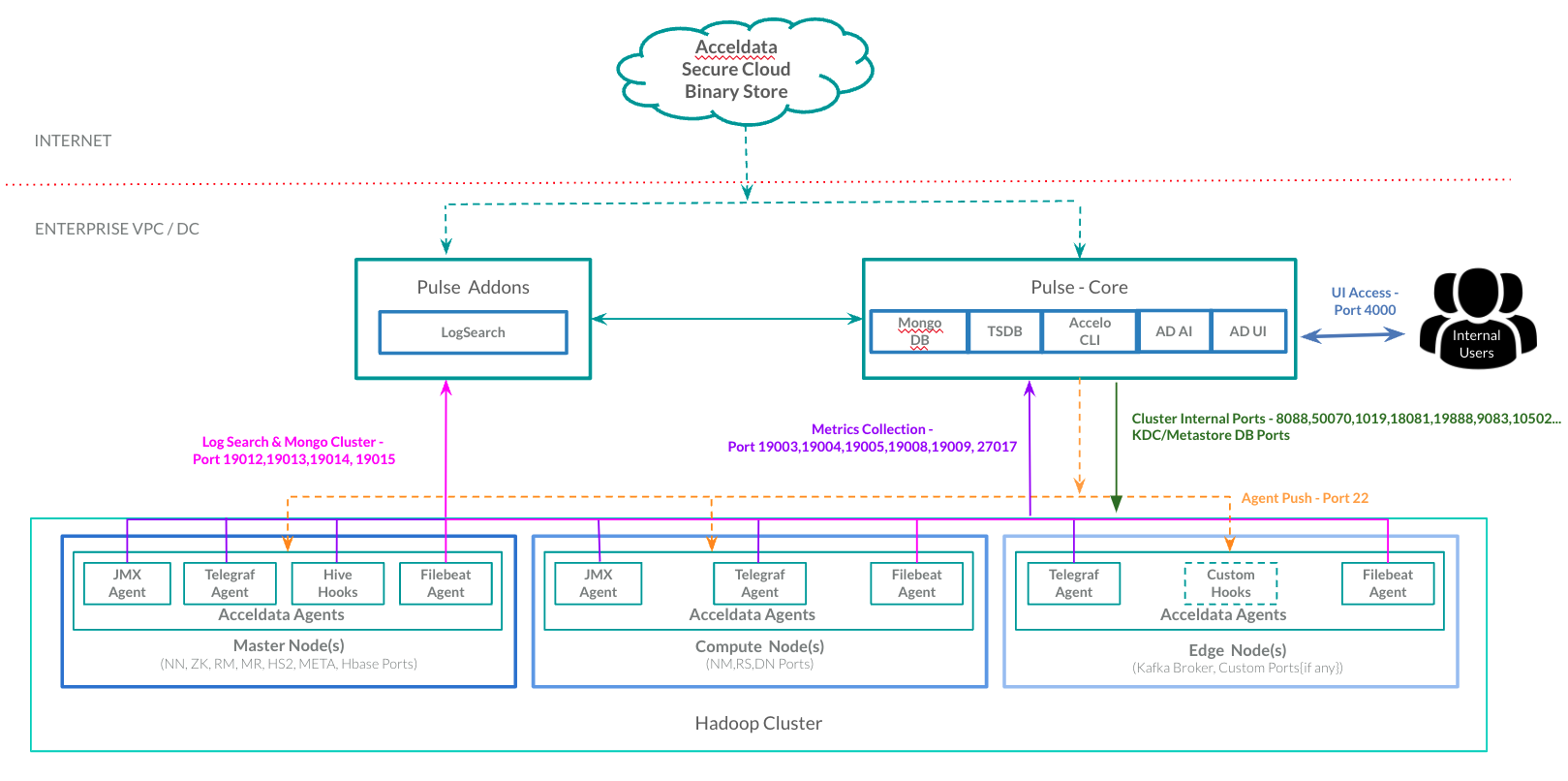Install Pulse on Multiple Nodes (Docker)
Pulse can scale horizontally as the number of nodes or cluster size increases.
Pulse is distributed among two nodes, as illustrated in the following deployment architecture diagram:

Deployment Architecture
The diagram also shows how independent modules like Logsearch, TSDB, and FS Analytics addons can be hosted separately to distribute workload and avoid resource bottlenecks on a single server.
- If the number of nodes or clusters set for a Pulse instance is significant, running all of the components on a single node may cause performance concerns.
- Provides Data-High-Availability. You can set up a MongoDB (ad-db), Elasticsearch (ad-elastic) cluster for data storage and replications.
Components that can be run in stand-alone mode:
- ad-db
- ad-tsdb
- ad-logsearch
- ad-fs-elastic
- ad-graphql
- ad-proxy
- ad-ldap
Pulse Multi-Node Setup
You must execute the steps in this section in all of the nodes where the above components are to be installed, to setup Pulse in multi node environment.
- Generate the encrypted string for the mongo URI :
mongodb://accel:<MONGO_PASSWORD>@<PULSE_MASTER_HOST>:27017by executing the following command.
accelo admin encryptYou must copy the output of the above command.
- Add the environment variables to the
/etc/profile.d/ad.shfile by executing the following commands.
export MONGO_URI="" #Paste the output of the previous command in the double quotes.export MONGO_ENCRYPTED=trueexport PULSE_SA_NODE=true- Source the
/etc/profile.d/ad.shfile by executing the following command.
source /etc/profile.d/ad.shWas this page helpful?